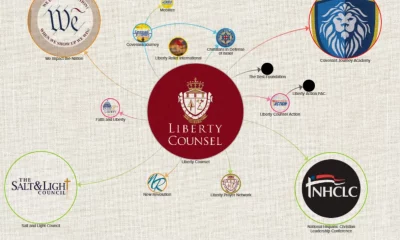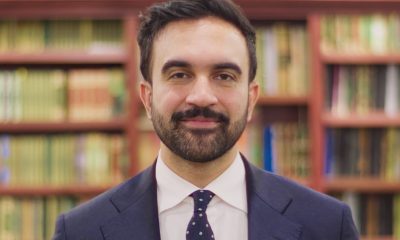Congress
Post-Roe marriage equality threat highlighted in congressional hearing
Justice Clarence Thomas supports revisiting Obergefell decision
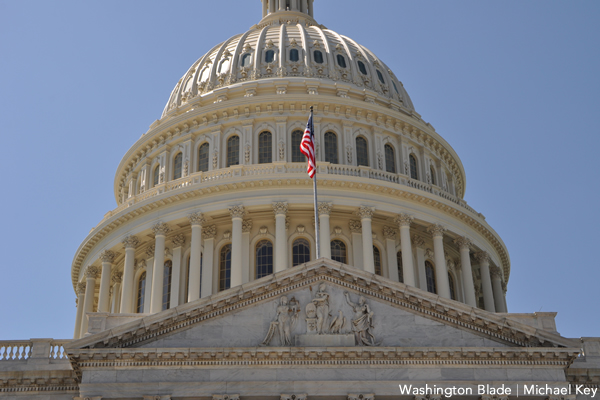
Marriage equality advocates during a congressional hearing Thursday raised fears that the right for same-sex couples to marry could be in peril in the wake of the U.S. Supreme Court’s decision to overturn Roe v. Wade.
LGBTQ activists delivered testimony before the House Judiciary Committee in a hearing titled, “What’s Next: The Threat to Individual Freedoms in a Post-Roe World,” putting the rights for same-sex couples to marry on par with abortion rights targeted by social conservatives in a 50-year effort.
Jim Obergefell, who was the lead plaintiff of the Obergefell v. Hodges decision that led the Supreme Court to rule in favor of marriage equality nationwide in 2015, gave deeply personal testimony about his efforts in securing state recognition of his marriage to his late spouse, who died of Lou Gehrig’s disease, as he made the plea to keep protection in courts.
“No couple, no family, should be forced to go to great financial expense and legal effort to gain a pale approximation of the rights and protections that come automatically with marriage,” Obergefell said. “That is not marriage, and it sets our relationships and families apart as something less worthy.”
The hearing was wide-ranging in the issues seen at play in the aftermath of the Dobbs decision, including marriage, contraception and intimacy for same-sex couples, which were called into question after Justice Clarence Thomas wrote in a concurrence decision that granting those rights should be reevaluated. Americans United for Life CEO Catherine Glenn Foster made news when she said a 10-year-old who was impregnated by rape should be forced to carry the child to full term.
Also delivering testimony before the committee was Human Rights Campaign Legal Director Sarah Warbelow, who envisioned an end to Lawrence v. Texas, the 2003 Supreme Court decision that struck down anti-sodomy laws, as a precursor to the end to marriage equality.
“To put it squarely, if Lawrence were overturned a marriage certificate could be evidence of a crime,” Warbelow said. “Today, nearly a dozen states retain laws criminalizing same-sex sexual relationships, and 35 states still have laws or constitutional amendments on the books that bar same-sex couples from marrying.”
Fears the Lawrence decision could be in danger were stoked by remarks from Texas Attorney General Ken Paxton, who said when asked during a media interview about having to defend his state’s laws against contraception, marriage or sodomy that he had a duty to defend them.
One pointed exchange during the hearing took place between Warbelow and U.S. Rep. Matt Gaetz (R-Fla.), who asked her about whether it was more likely a lesbian women would be impregnated by sexual assault and want an abortion or a same-sex couple to seek to adopt a child.
It would make no sense, Gaetz said in a dubious argument, for same-sex couples to support abortion because many seek to adopt.
Warbelow had none of it.
“It may not be more likely, but it’s an important interest someone who needs access to abortion care be able to access it,” she said.
As part of the questioning, Gaetz also asked whether the definition of a bisexual woman is someone who would pursue sexual relationships with both men and women, but Warberlow said that was not the case. Gaetz’s response was part of an exchange that went out on social media.
Gaetz himself tweeted out the video, commenting it was a “truly remarkable” attempt to redefine bisexuality.
The Florida Republican concluded his testimony by asking to Warbelow to verify that no state legislatures has introduced legislation, or even conducted a hearing, on the idea of rescinding same-sex marriage in the aftermath of the Dobbs decision. Warbelow started to deny that account and say the time after Dobbs has been brief.
No serious effort is currently underway in any state seeking to roll back marriage rights for same-sex couples. The last such challenge was in 2020 and from the solicitor general of Indiana, who was seeking to challenge the decision on the basis of birth certificates for the children of women in same-sex marriages.
Even the current 6-3 conservative majority on the Supreme Court declined to hear the case.
Congress
Five HIV/AIDS activists arrested outside Susan Collins’s D.C. office
Protesters demanded full PEPFAR funding
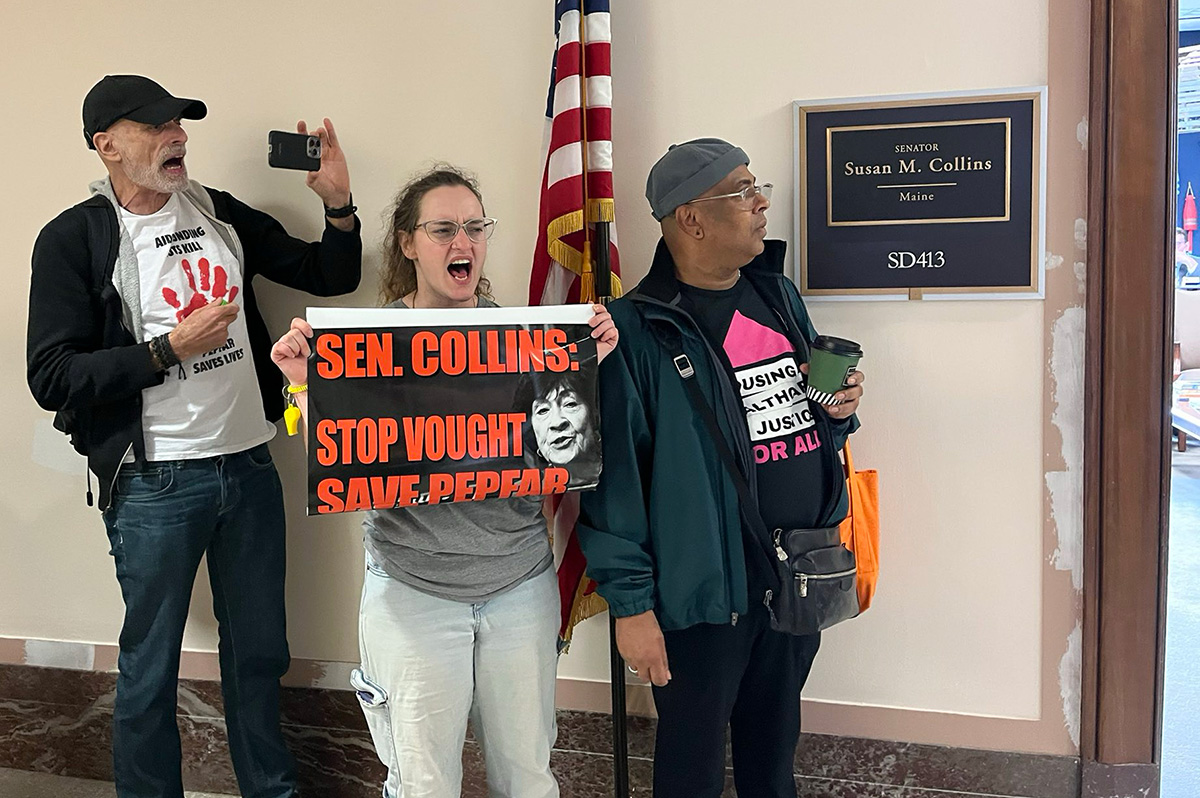
U.S. Capitol Police on Tuesday arrested five HIV/AIDS activists who protested outside U.S. Sen. Susan Collins (R-Maine)’s office in the Dirksen Senate Office Building.
A press release that Housing Works, Health GAP, and Disability Voters of Maine issued notes 30 HIV/AIDS activists “carried out an act of civil disobedience” at Collins’s D.C. office and “delivered mock ‘bodybags'” to her office in Portland, Maine.
“Activists were reacting to deadly harms caused by Collins’s unwillingness to hold Office of Management and Budget (OMB) Director Russell Vought accountable for illegally obstructing the release of already appropriated funding for lifesaving HIV treatment and prevention,” reads the press release.
Elizabeth Koke, senior director of brand strategy for Housing Works, told the Washington Blade that Housing Works CEO Charles King is among those who were arrested in D.C. The press release notes 30 HIV/AIDS activists participated in the protest.
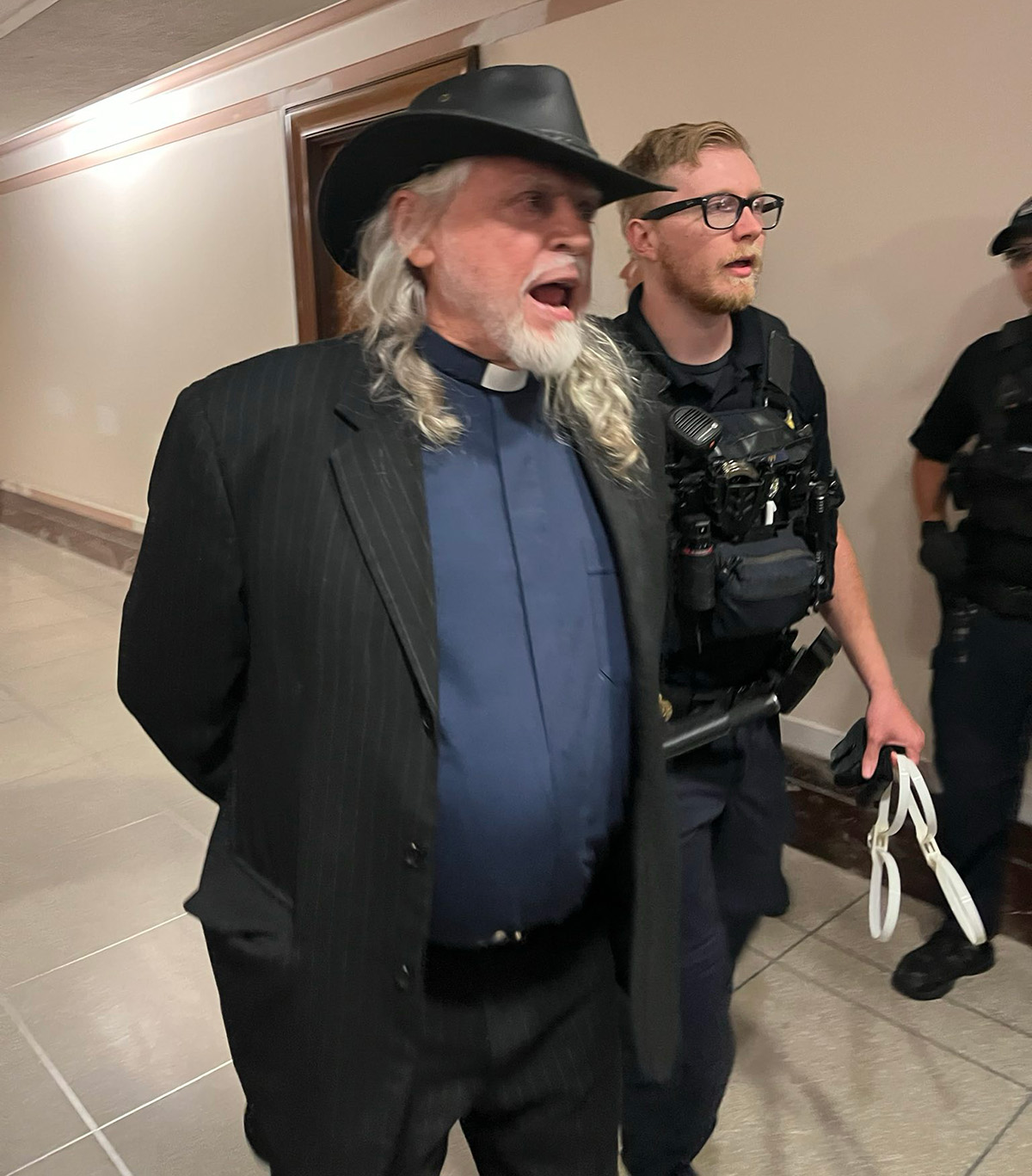
Activists since the Trump-Vance administration took office in January have demanded full PEPFAR funding.
Secretary of State Marco Rubio Jan. 28 issued a waiver that allowed PEPFAR and other “life-saving humanitarian assistance” programs to continue to operate during the freeze on nearly all U.S. foreign aid spending. HIV/AIDS service providers around the world with whom the Blade has spoken say PEPFAR cuts and the loss of funding from the U.S. Agency for International Development, which officially closed on July 1, has severely impacted their work. (The State Department last month announced PEPFAR will distribute lenacapavir, a breakthrough HIV prevention drug, in countries with high prevalence rates.)
The New York Times in August reported Vought “apportioned” only $2.9 billion of $6 billion that Congress set aside for PEPFAR for fiscal year 2025. (PEPFAR in the coming fiscal year will use funds allocated in fiscal year 2024.)
Bipartisan opposition in the U.S. Senate prompted the Trump-Vance administration in July withdraw a proposal to cut $400 million from PEPFAR’s budget. Vought on Aug. 29 said he would use a “pocket rescission” to cancel $4.9 billion in foreign aid that Congress had already approved.
The federal government has been shut down since Oct. 1.
“In July, we applauded Collins’s willingness to fight for people with HIV which resulted in a temporary reprieve from further unlawful cuts,” said Health GAP Executive Director Asia Russell. “In response, Vought has gone behind Collins’s back. Why isn’t she fighting back? We cannot allow Collins to refuse to take action now — just because Vought is violating the law doesn’t mean she can break her promise to people with HIV.”
Collins chairs the Senate Appropriations Committee.
“Collins has said that PEPFAR funds are not reaching people in need, yet she refuses to use the full power of her position to end the political obstruction and lawlessness while people continue to die,” said Marie Follayttar of Disability Voters of Maine. “The consequences of her inaction, and of her votes, will be measured in body bags around the world.”
The protesters’ press release notes two specific demands for Collins:
• Fully restore PEPFAR programming by directing Vought to release withheld PEPFAR funding consistent with Congressional appropriations
• Include the release of withheld PEPFAR funding as part of her 6-point plan to re-open government
“Senator Collins has been the Senate champion for PEPFAR and was responsible for saving the program from $400 million in cuts just three months ago,” Blake Kernen, Collins’s press secretary, told the Blade on Wednesday. “It was difficult to understand what the protesters wanted or their message.”
“Many entered the office, sat on the ground, and used a loud noisemaker, which made it impossible to hear,” said Kernen. “A member of Sen. Collins’s staff offered to speak with the group, but they continued to shout over her and refused the offer.”
Congress
Mike Waltz confirmed as next UN ambassador
Trump nominated former national security advisor in May

The U.S. Senate on Sept. 19 confirmed former U.S. Rep. Mike Waltz (R-Fla.) as the next U.S. ambassador to the U.N.
The Florida Republican had been the national security advisor until President Donald Trump in May tapped him after U.S. Rep. Elise Stefanik (R-N.Y.) withdrew her nomination in order to ensure Republicans maintained their narrow majority in the U.S. House of Representatives.
Senators approved Waltz’s nomination by a 47-43 vote margin.
“Thank you President Trump and the U.S. Senate for your trust and confidence to Make the UN Great Again,” said Waltz on X.
The U.N. General Assembly is taking place this week in New York. Trump is scheduled to speak on Tuesday.
Congress
State Department urged to restore LGBTQ-specific information in human rights reports
Congressional Equality Caucus sent Secretary of State Marco Rubio a letter on Sept. 9

The Congressional Equality Caucus has called upon the State Department to once again include LGBTQ and intersex people in their annual human rights report.
U.S. Reps. Robert Garcia (D-Calif.), Julie Johnson (D-Texas), and Sarah McBride (D-Del.), who co-chair the caucus’s International LGBTQI+ Rights Task Force, spearheaded a letter sent to Secretary of State Marco Rubio on Sept. 9.
The 2024 human rights report the State Department released last month did not include LGBTQ-specific references. Jessica Stern, the former special U.S. envoy for the promotion of LGBTQ and intersex rights under the Biden-Harris administration who co-founded the Alliance for Diplomacy and Justice, described the removal of LGBTQ and intersex people and other groups from the report as “deliberate erasure.”
“We strongly oppose your decision to remove the subsection on Acts of Violence Criminalization, and Other Abuses Based on Sexual Orientation, Gender Identity or Expression, or Sex Characteristics (SOGIESC Subsection) from the State Department’s Annual Country Reports on Human Rights Practices (Human Rights Reports),” reads the letter. “We urge you to restore this information, or else ensure it is integrated throughout each human rights report.”
Congress requires the State Department to release a human rights report each year.
The Congressional Equality Caucus’s letter points out the human rights reports “have been a critical source of information on human rights violations and abuses against LGBTQI+ persons around the world.” It specifically notes consensual same-sex sexual relations remain criminalized in more than 60 countries, and the 2017 human rights report included “details on the state-sponsored and societal violence against LGBTQI+ persons in Chechnya, including extrajudicial killings.”
Immigration Equality in response to the 2024 human rights report said the reports “serve as key evidence for asylum seekers, attorneys, judges, and advocates who rely on them to assess human rights conditions and protection claims worldwide.”
“The information in these reports is critical — not just for human rights advocates — but also for Americans traveling abroad,” reads the Congressional Equality Caucus’s letter. “LGBTQI+ Americans and their families must continue to have access to comprehensive, reliable information about a country’s human rights record so they can plan travel and take appropriate precautions.”
The caucus’s full letter can be read here.
-

 District of Columbia3 days ago
District of Columbia3 days ago‘Sandwich guy’ not guilty in assault case
-

 Sports4 days ago
Sports4 days agoGay speedskater racing toward a more inclusive future in sports
-

 New Jersey5 days ago
New Jersey5 days agoBlue wave hits Northeast: Sherrill and Mamdani lead Democratic comeback
-

 District of Columbia5 days ago
District of Columbia5 days agoTrial begins for man charged with throwing sandwich at federal agent





